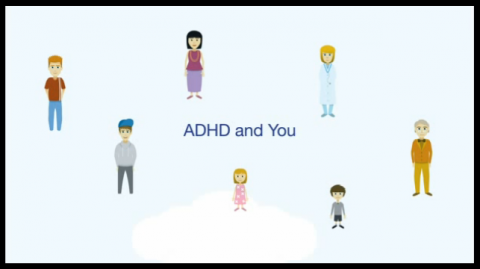The challenges and rewards of adult ADHD

With the launch of a new resource for parents and teachers who deal with children suffering from attention deficit hyperactivity disorder (ADHD), John Holden looks at how the condition affects people untreated in later life.
The phrase “she’ll grow out of it” probably runs through many parents’ minds if their child shows signs of ADHD. However, just because you were in school 15-20 years ago, when it wasn’t being widely diagnosed, doesn’t mean it didn’t exist back then. While ADHD is something usually associated with children, left untreated it will remain a problem for sufferers in adulthood.
One child in 20 in Ireland suffers from the disorder (signs tend to become apparent between the ages of 4-7 years). Trying to put any kind of number on adult sufferers, however, is far more difficult.
For one thing, if you live with any condition for long enough, you learn to adapt, or at least to shape your life to suit your own way of doing things.
“Adults living with the condition tend to delegate responsibilities to other people,” explains clinical psychologist William Wilkinson. “The kind of work they pick tends to be much more active and not clerical. They’ll choose a job that is movement oriented. They shape their whole personality to match their style, but people tend to do that naturally anyway.”
The same symptoms apply to adults as to children: short attention span, distractible, difficulty in finishing tasks, difficulty engaging in activity that needs sustained work, disorganisation, forgetfulness, difficulty paying attention to detail, etc. These issues will shape everything, including relationships. “Adults with ADHD will very often assign their partner to do the things they aren’t capable of doing, which is probably quite stressful for the other person,” says Williamson.
A tendency to be impulsive means an adult with ADHD can find themselves dealing with addiction and substance abuse. “They are more inclined to engage in drug use, usually of the sedative kind,” says Wilkinson.
Another problem associated with adult diagnosis, according to Wilkinson, is that other, better understood adult mental health conditions can mean it is ignored. “With adults you get other psychiatric issues taking precedence – the ones that are most understood and most recognised, like depression. But the symptoms of a sufferer may be rooted in ADHD that began in childhood.”
It’s not all bad news though. According to the adult ADHD website, there are many positives to living with the condition in later life that are often overlooked. For starters, an adult with ADHD is able to fit a lot more into a day than the average person “because of their constant desire to be doing something.” Creativity is also very apparent in ADHD-affected adults. In addition, people with ADHD can be quick-minded and intelligent and can become very successful when they are in a position to work at something they are passionate about.
It doesn’t have to be a problem. However, there is treatment for those who see it as such. “The biggest challenge is doing a proper assessment,” says Wilkinson. “As a therapist you need to get to know the person through talking with them as well as with other people who know them – family and friends. Then we might also use concentration and memory tests on a computer – to see if they can stay on a task for a certain period of time. We would also look at their relationships, jobs, school history etc. The challenge is to get good quality information.”
The new guidebook for parents and teachers, developed and funded by Shire Pharmaceuticals in collaboration with ADHD-Europe and the European ADHD Awareness Taskforce can be downloaded at adhdandyou.ie.
